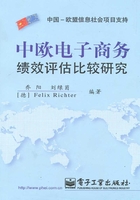
(附原序英文原文)
Information Society - Driver of Social and Economic Development
“Information Society”? Hardly ever did a short phrase contain so many complex questions and policy challenges.What issues are we talking about when discussing information society? Which markets? Which technologies? Which applications? Which new forms of behaviour and of social interaction? Which new opportunities when gaining information for education and entertainment? Which great challenges when learning how to navigate this flood of information wisely and staying on top of it as opposed to drowning in it?
New developments like user-generated content and networking platforms that we have come to know as Web 2.0, have proved to be efficient and well-made tools that already enter the professional space.Work currently being done on the semantic web, on search and organization, will open up transform and multiply our access to knowledge to empower us.
In the future, digital culture and digital content will be even more at the core of our lives and our knowledge, and it is therefore vital that we make it accessible in every sense of the word.On an institutional level for example by establishing digital libraries; on a policy level through freedom of information laws and other transparency provisions; on a literacy level by dedicating more effort to teaching citizens how to access information, how to put it into context, and how to form critical opinions based on it.Information Society is a society where information is accessible and usable by many, but not automatically.
The new technologies largely driving this development will have an enormous impact on education, health and administration.There is no area of life where new technologies and new forms of organizing knowledge will not substantially change the way of doing things.The skills required to handle these changes will be a decisive factor in who truly benefits and who does not.
It is important to note that we believe there is a clear aim behind fostering Information Society.Widely accessible information and communication resources can benefit everybody individually as well as society at large, on an economic and social level.Information Society is about growth, but it is more than just the growth of markets.New technologies help us approach our environmental challenges such as climate change, they allow us to improve living conditions for an ageing generation, they build bridges to economic and geographic parts of our societies that were very hard to reach before, and harder still to connect to our lives and markets.It is this growth in quality of life that we should be reaching for.
These are possibilities not just for the comparatively well-developed areas of the European Union.Digital opportunities are up for grabs by anybody, and especially large transition countries such as China.With its very heterogeneous economic and social structure, China has long realised that the transition towards a service economy is a huge opportunity to create better and more sustainable links with the global economy.
Together with the EU Member States, the European Commission has set up a programme to bundle those economic and political challenges, and to serve as a guide for decision-makers in politics, administration and industry.This initiative that we call the “i2010 programme” seeks to create a true European Information Space - a single market for the digital economy; by promoting investment in R&D; and through policies to boost the benefits of ICTs in society by encouraging a wide take up of life saving, inclusion generating informational services.The programme is based on the belief that in an environment of open markets, free flow of information and flexible regulatory solutions to accommodate technological innovation, Information Society can flourish.We think this programme is a role model for how the “phenomenon Information Society” can be organised and managed, allowing it to develop according to its own innovative power, with governments providing support and a framework of rules to provide guidance.